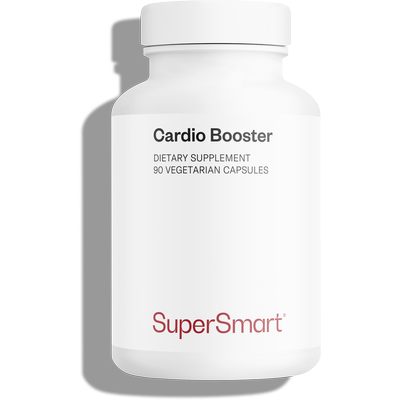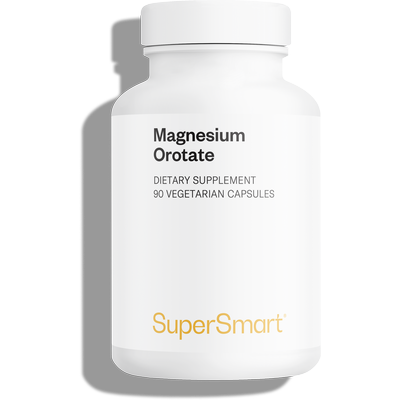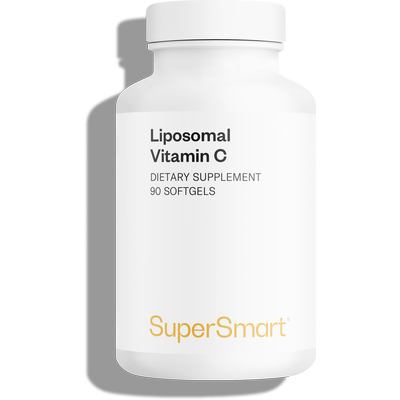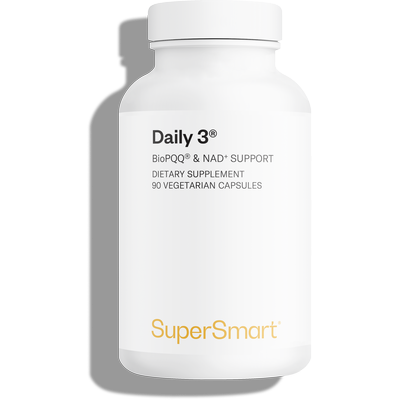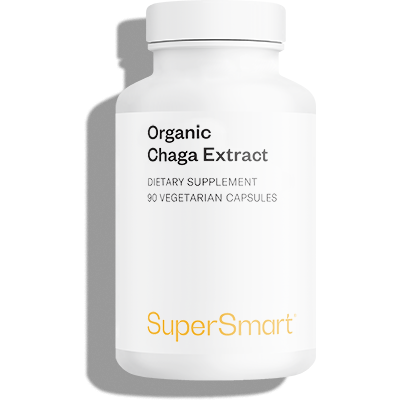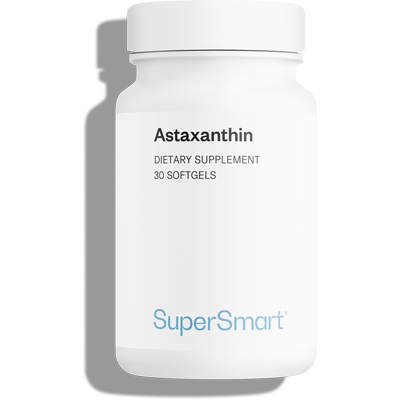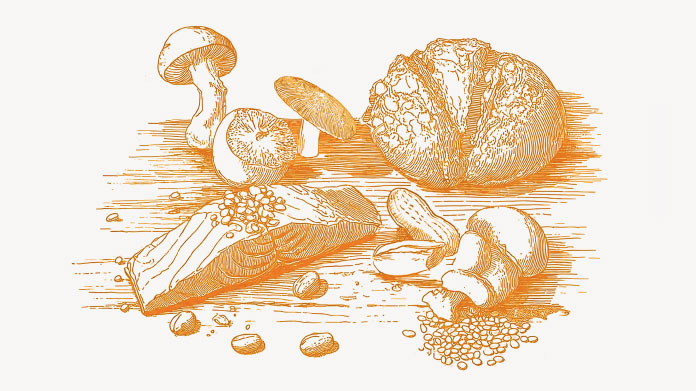
2 cups of coffee a day for healthy blood pressure?
That’s what Italian scientists are suggesting following their study of more than 700 men and almost 800 women, the results of which were published in the journal Nutrients on 8 January 2023 (1).
Participants underwent several tests, including having their peripheral blood pressure taken (the sort doctors measure on the upper arm) as well as central aortic blood pressure (the aorta being the main artery that carries blood directly from the heart to the rest of the body).
According to the results of this large-scale study, people who drank between one and three cups of coffee a day appeared to have significantly lower blood pressure than those who did not drink it.
The study authors thus concluded that moderate coffee consumption has a beneficial effect on blood pressure. This may seem somewhat counter-intuitive given that caffeine is generally accepted to be the major active compound in coffee, but the researchers point out that the beverage also contains many other substances which offer multiple benefits.
Health benefits of coffee
The effect that first springs to mind when we think about coffee is obviously a stimulant one. This is directly related to caffeine which improves alertness, boosts performance, reduces fatigue, etc. Indeed, coffee is often considered the most widely-consumed psychoactive drug in the world(2).
But coffee also contains another active principle: chlorogenic acid, a powerfully antioxidant polyphenolic compound. Research has shown this molecule to have positive effects on the oxidation of LDL cholesterol in particular, as well as potential anxiolytic benefits (3-5).
In general terms, a vast meta-analysis published in the European Journal of Epidemiology (which looked at data from 40 studies involving 4 million participants) concluded that moderate consumption of coffee reduces the risk of dying from heart disease by 17% and from a diabetes-related problem by 24% (6)!
Coffee: take care not to over-indulge!
A note of caution however: according to the European Food Safety Agency (EFSA), you shouldn’t consume more than 400mg of caffeine a day, equivalent to 4 espressos (7).
This is because although caffeine is a cardiotonic, excessive consumption has an adverse effect: it causes the blood pressure to rise and the heart to become fatigued. Indeed, according to a study published in The American Journal of Clinical Nutrition, drinking more than 5 cups of coffee a day increases the risk of cardiovascular disease by 22% (8).
Increased blood pressure can also cause headaches, difficulty concentrating and even nausea.
So as is often the case, moderation is key when it comes to the health benefits of coffee!
What natural alternatives are there to coffee?
Regardless of whether or not you drink coffee, if you want to reduce your levels of fatigue and regain your vitality and energy, we’d recommend taking a course of vitamin C (such as Liposomal Vitamin C) and magnesium (Magnesium Orotate for example). Synergistic multivitamin formulations(such as Daily 3) are also excellent options. In addition, the mushroom chaga is traditionally used for its invigorating properties (cf. Organic Chaga Extract).
If you think you’re addicted to coffee, or find it too stimulating, then gradually switch to tea. Remember that tea also contains caffeine (it’s called ‘theine’ but is exactly the same molecule). A cup of tea contains 3-4 times less caffeine than a cup of coffee. Theine is also absorbed more slowly, restricted by the tannins in tea. Tea is thus recognised as a stimulant but without the ‘over-stimulant’ effects that coffee can produce, it being absorbed much faster by the body.
If you’re looking to maintain your heart health, irrespective of how much coffee you drink, consider hawthorn (recognised for supporting healthy cardiovascular function) and vitamin B12 (which plays a role in normal blood cell formation). Think about potassium too, as it supports healthy muscle function, including cardiac muscle. These compounds are found in synergistic formulationstargeted at the cardiovascular system (such as Cardio Booster).
And finally, to boost your antioxidant intake, we’d suggest taking natural astaxanthin combined with vitamin E (Astaxanthin), or a course of potent apple polyphenols (which you can find in the supplement Apple Polyphenols, listed in our ‘anti-ageing’ category).
SUPERSMART ADVICE
References
- CICERO, Arrigo FG, FOGACCI, Federica, D’ADDATO, Sergio, et al.Self-Reported Coffee Consumption and Central and Peripheral Blood Pressure in the Cohort of the Brisighella Heart Study. Nutrients, 2023, vol. 15, no 2, p. 312.
- GEORGE, Sunitha Elizabeth, RAMALAKSHMI, Kulathooran, et MOHAN RAO, Lingamallu Jagan. A perception on health benefits of coffee. Critical reviews in food science and nutrition, 2008, vol. 48, no 5, p. 464-486.
- TAJIK, Narges, TAJIK, Mahboubeh, MACK, Isabelle, et al.The potential effects of chlorogenic acid, the main phenolic components in coffee, on health: a comprehensive review of the literature. European journal of nutrition, 2017, vol. 56, p. 2215-2244.
- WAN, Chun‐Wai, WONG, Candy Ngai‐Yan, PIN, Wing‐Kwan, et al.Chlorogenic acid exhibits cholesterol lowering and fatty liver attenuating properties by up‐regulating the gene expression of PPAR‐α in hypercholesterolemic rats induced with a high‐cholesterol diet. Phytotherapy Research, 2013, vol. 27, no 4, p. 545-551.
- HEITMAN, Erin et INGRAM, Donald K. Cognitive and neuroprotective effects of chlorogenic acid. Nutritional Neuroscience, 2017, vol. 20, no 1, p. 32-39.
- KIM, Youngyo, JE, Youjin, et GIOVANNUCCI, Edward. Coffee consumption and all-cause and cause-specific mortality: a meta-analysis by potential modifiers. European journal of epidemiology, 2019, vol. 34, p. 731-752.
- https://www.efsa.europa.eu/fr/topics/topic/caffeine
- CORNELIS, Marilyn C. et VAN DAM, Rob M. Coffee consumption and disease networks. The American journal of clinical nutrition, 2022, vol. 116, no 3, p. 625-626.
7 Days
Delivery is prompt and I never saw a…
Delivery is prompt and I never saw a quality problem with the manufacturing. It is not possible to assess efficacy on a personal basis, since too many factors come into play. Efficacy can only be assessed statistically with a sufficient number of cases.
Roger De Backer
8 Days
I collaborates with the Supersmart…
I collaborates with the Supersmart more than 10 years. Every thing is going good. Quality of the things is good. Delivery comes in time. Five stars definitely !!!
Oleksiy
8 Days
All good
Simple, frictionless site, easy ordering, good delivery updates and execution.
Chris Robbins
10 Days
I feel better
I feel better
Peter Ammann
10 Days
Prompt delivery
Prompt delivery
JAKUB Radisch
11 Days
My new go-to for top quality supplements!
I am buying more and more of my supplements from this superb, high quality company. Cannot recommend it enough. Plus, excellent customer service with a quick, helpful team and speedy deliveries. Highly recommend Supersmart!
Cecilie H.
15 Days
SUPERSMART WHAT ELSE👍
SUPERSMART WHAT ELSE👍
DIEDERLE Christophe
18 Days
Excellent quality products with…
Excellent quality products with innovative formulas, as someone who has been suffering with acid reflux, these supplements have been lifesavers.
Oriana Moniz
18 Days
high quality supplement!
high quality supplement!
GALANT
18 Days
Good service prompt delivery
Good service prompt delivery
Mrs Marcella Reeves
23 Days
I like your clear explanation
I like your clear explanation. And how to make a choice of products for a specific health problem
Ingrid
30 Days
Great product and it arrives quickly.
Great product and it arrives quickly.
SOMMARIVA Gianni
31 Days
Excellent products and fast service.
Excellent products and fast service. What do we need more?
Margarida
35 Days
The variety of products is amazing
The variety of products is amazing, the offers are good and the sending is very fast. I just miss having a bit more of guidance about combinations, possible interactions, etc.
Maria Angeles Verdu
36 Days
It was quick
It was quick.
Timo Antero

